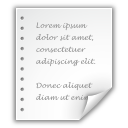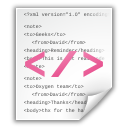A dialogue between Alexander the Great & Diogenes the Cynic
| dc.contributor | Farringdon, Michael Department of Computer Science, University College of Swansea |
| dc.contributor.author | Fielding, Henry, 1707-1754 |
| dc.date.accessioned | 2018-07-27 |
| dc.date.accessioned | 2019-07-04T11:05:55Z |
| dc.date.available | 2019-07-04T11:05:55Z |
| dc.date.created | 1743 |
| dc.identifier | ota:2272 |
| dc.identifier.citation | http://purl.ox.ac.uk/ota/2272 |
| dc.identifier.uri | http://hdl.handle.net/20.500.12024/2272 |
| dc.description.abstract | Mode of access: Online. OTA website Title proper taken from printed documentation Publication based on this text: A computer-aided study of the prose style of Henry Fielding and its support for his translation of The military history of Charles XII / Michael Farringdon, Jill Farringdon. -- p. 95-105. In Advances in computer-aided literary and linguistic research : proceedings of the fifth international symposium on computers in literary and linguistic research held at the University of Aston in Birmingham, UK from 3-7 April 1978 / edited with an introduction by D.E. Ager, F.E. Knowles, Joan Smith. -- Aston : University of Aston, Department of Modern Languages, 1979. -- ISBN 0-903807-64-5. |
| dc.format.extent | Text data (1 file : ca. 14.4 KB) |
| dc.format.medium | Digital bitstream |
| dc.language | English |
| dc.language.iso | eng |
| dc.publisher | University of Oxford |
| dc.relation.ispartof | Legacy Collection Digital Museum |
| dc.rights | Distributed by the University of Oxford under a Creative Commons Attribution-NonCommercial-ShareAlike 3.0 Unported License. |
| dc.rights.uri | http://creativecommons.org/licenses/by-nc-sa/3.0/ |
| dc.rights.label | PUB |
| dc.subject.lcsh | Dialogues -- Great Britain -- 18th century |
| dc.title | A dialogue between Alexander the Great & Diogenes the Cynic |
| dc.type | Text |
| has.files | yes |
| branding | Oxford Text Archive |
| files.size | 20610 |
| files.count | 2 |
| otaterms.date.range | 1700-1799 |
This item is
Attribution-NonCommercial-ShareAlike 3.0 Unported (CC BY-NC-SA 3.0)
Publicly Available
and licensed under:Attribution-NonCommercial-ShareAlike 3.0 Unported (CC BY-NC-SA 3.0)
Files for this item
Download all local files for this item (20.13 KB)

- Name
- mdiogenes-2272.txt
- Size
- 14.41 KB
- Format
- Text file
- Description
- Version of the work in plain text format
<A FIELDING>
<T MDIOGENES>
<P 226><L 1>
ALEXANDER
WHAT FELLOW ART THOU, WHO DAREST THUS TO LIE AT THY EASE IN
OUR PRESENCE, WHEN ALL OTHERS, AS THOU SEEST, RISE TO DO US HOMAGE?
DOST THOU NOT KNOW US?
DIOGENES
I CANNOT SAY I DO: BUT BY THE NUMBER OF THY ATTENDANTS, BY
THE SPLENDOR OF THY HABIT; BUT, ABOVE ALL, BY THE VANITY OF THY
APPEARANCE, AND THE ARROGANCE OF THY SPEECH, I CONCEIVE THOU
MAYST BE ALEXANDER THE SON OF PHILIP.
ALEXANDER
AND WHO CAN MORE JUSTLY CHALLENGE THY RESPECT, THAN
ALEXANDER, AT THE HEAD OF THAT VICTORIOUS ARMY, WHO HATH PERFORMED
SUCH WONDERFUL EXPLOITS, AND UNDER HIS CONDUCT HATH
SUBDUED THE WORLD?
DIOGENES
WHO? WHY THE TAYLOR WHO MADE ME THIS OLD CLOAK.
<P 227><L 1>
ALEXANDER
THOU ART AN ODD FELLOW, AND I HAVE A CURIOSITY TO KNOW THY
NAME.
DIOGENES
I AM NOT ASHAMED OF IT: I AM CALLED DIOGENES; A NAME COMPOSED
OF AS MANY AND AS WELL SOUNDING SYLLABLES AS ALEXANDER.
ALEXANDER
DIOGENES, I REJOYCE AT THIS ENCOUNTER9 I HAVE HEARD OF THY
NAME, AND BEE . . .






